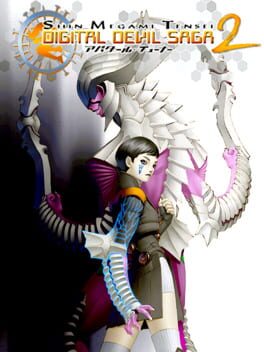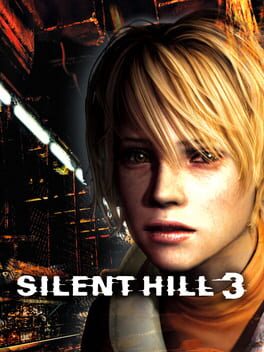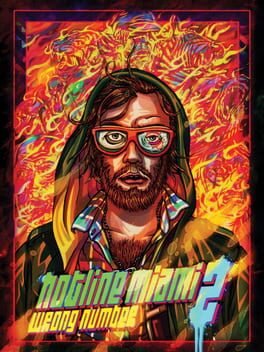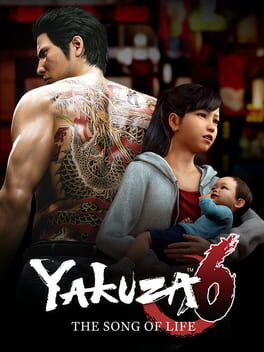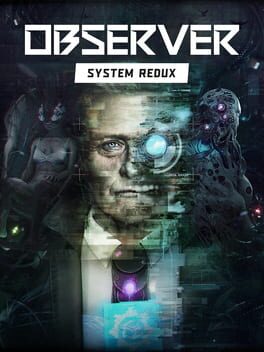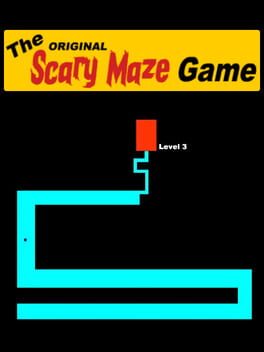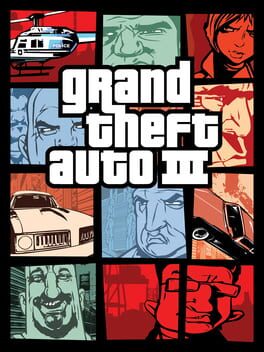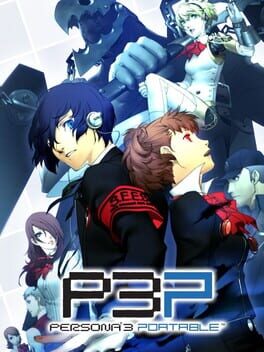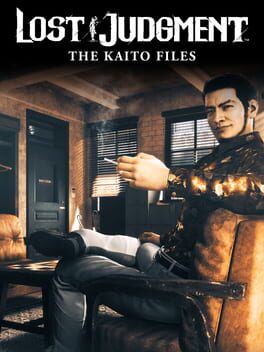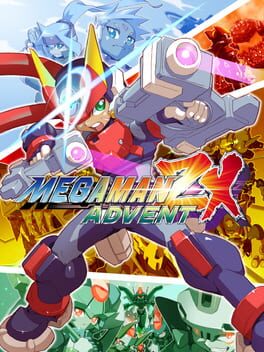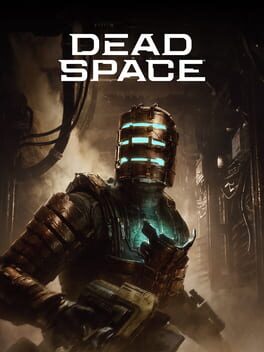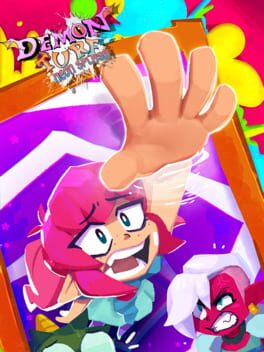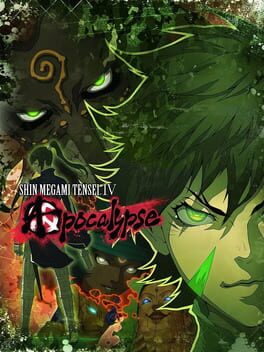Moister
Seeking Ātman in Nirvana
Digital Devil Saga 2 continues directly were the anti-climatic ending of Digital Devil Saga left off. Unlike your Shin Megami Tenseis or Personas, Digital Devil Saga is deeply connected to it's sequel which I might add it is necessary to enjoy the story at it's fullest since this comprises the events from the past, present and the eventual future. It explains what Digital Devil Saga couldn't with it's first game, and greatly expands on the core concepts of the original to create a worthy sequel to the original.
After finishing both game I now understand why they are considered underrated titles, overlooked by people and even the fandom. Digital Devil Saga story is somewhat complex if you don't understand the core concepts of Hinduism, mainly why things happen in the first place. Hunduism itself is not directly stated at any point of both games directly, rather it is present in the concepts set religion left to study and analyze. Digital Devil Saga translates those elements to give the story and gameplay a meaningful purpose. Samsara, Ātman, Nirvana and lots of other concept can flew over people's head if not careful. Did about an hour of research of the main concepts themselves, what they are how are applied here. They get directly translated, thus it is hard to sell someone on Hinduism regardless of religion or personal beliefs just to play a MegaTen game.
Now, with Digital Devil Saga 2 itself. Before entering this game my thoughs went to thinking the duology was rushed and they were supossed to be one game. It doesn't seem the case after finishing it, the tone shift is clear from the start and something this big couldn't have been achieved in one single game. Digital Devil Saga 2 gets rid of the apocalyptic and destroyed setting of the Junkyard and transport us to an urban setting, more grounded and resembling our reality. Airports, research installations, power plants, you get the idea. This is explained throughout the story, as a setting completely different from the first game. As I said before, it explains everything the prequel couldn't.
The story while not as subtle as the first game still retains that sense of mystery and symbolism that featured the prequel. Ambitious and definitely punches above it's weight most of the time as the game only shows the "key" moments to interpret the story as a whole. It is a lot to handle at once, it is possible that details get fuzzy, mixed or outright forgotten. Mainly due to the pacing which not only Digital Devil Saga 2 had but the first game as well. These are the Dungeons were it's 100% gameplay focused, sometimes story bits are introduced as a reminded of what we are currently doing. Personally, I do think they were long and bland for the most part without much of substance. Strange, knowing Nocturne and Digital Devil Saga had very fun dungeons to explore. It got tiring after a while.
On the other hand, the gameplay were the RPGs aspect take hand are expanded upon the first game. From the rings, to the new Mantra Grid and various other gadgets that will help on the adventure. It is possible to carry your data from Digital Devil Saga too, for difficulty sake I didn't do that as I thought it would break the game as it is. Luckly it isn't hard, rather I would use the world "Fair" to describe it. Now battles are more engaging as it is constantly rewarding you based on your luck. Entering....The Jack Frost Show, Omoikane's Treasure and Berserk Mode. These are made up names, but the message is: These are methods that reward your knowledge and your luck on battle. As usual it retains everything that made the original so good, leaning into heavy player expression thanks to the rings and a revamped Mantra Grid.
Ultimately Digital Devil Saga message is about moving forward, enlightment and dealing with the past from an empathic and comprehensive point of view. The point of surviving, survival of the fittest made clear in the first game gets ditched to level ourself and resolve the problem of humanity triggered by greed. It is the classic JRPG tale after all, but there are some many twists to the already stablished formula it stands for something newer while keeping compelling part of it intact. It is one of the most story involved MegaTen games too, putting aside the gameplay aspects of it. Can't say is one of my favourites, but it was worth looking for something new in the franchise.
Digital Devil Saga 2 continues directly were the anti-climatic ending of Digital Devil Saga left off. Unlike your Shin Megami Tenseis or Personas, Digital Devil Saga is deeply connected to it's sequel which I might add it is necessary to enjoy the story at it's fullest since this comprises the events from the past, present and the eventual future. It explains what Digital Devil Saga couldn't with it's first game, and greatly expands on the core concepts of the original to create a worthy sequel to the original.
After finishing both game I now understand why they are considered underrated titles, overlooked by people and even the fandom. Digital Devil Saga story is somewhat complex if you don't understand the core concepts of Hinduism, mainly why things happen in the first place. Hunduism itself is not directly stated at any point of both games directly, rather it is present in the concepts set religion left to study and analyze. Digital Devil Saga translates those elements to give the story and gameplay a meaningful purpose. Samsara, Ātman, Nirvana and lots of other concept can flew over people's head if not careful. Did about an hour of research of the main concepts themselves, what they are how are applied here. They get directly translated, thus it is hard to sell someone on Hinduism regardless of religion or personal beliefs just to play a MegaTen game.
Now, with Digital Devil Saga 2 itself. Before entering this game my thoughs went to thinking the duology was rushed and they were supossed to be one game. It doesn't seem the case after finishing it, the tone shift is clear from the start and something this big couldn't have been achieved in one single game. Digital Devil Saga 2 gets rid of the apocalyptic and destroyed setting of the Junkyard and transport us to an urban setting, more grounded and resembling our reality. Airports, research installations, power plants, you get the idea. This is explained throughout the story, as a setting completely different from the first game. As I said before, it explains everything the prequel couldn't.
The story while not as subtle as the first game still retains that sense of mystery and symbolism that featured the prequel. Ambitious and definitely punches above it's weight most of the time as the game only shows the "key" moments to interpret the story as a whole. It is a lot to handle at once, it is possible that details get fuzzy, mixed or outright forgotten. Mainly due to the pacing which not only Digital Devil Saga 2 had but the first game as well. These are the Dungeons were it's 100% gameplay focused, sometimes story bits are introduced as a reminded of what we are currently doing. Personally, I do think they were long and bland for the most part without much of substance. Strange, knowing Nocturne and Digital Devil Saga had very fun dungeons to explore. It got tiring after a while.
On the other hand, the gameplay were the RPGs aspect take hand are expanded upon the first game. From the rings, to the new Mantra Grid and various other gadgets that will help on the adventure. It is possible to carry your data from Digital Devil Saga too, for difficulty sake I didn't do that as I thought it would break the game as it is. Luckly it isn't hard, rather I would use the world "Fair" to describe it. Now battles are more engaging as it is constantly rewarding you based on your luck. Entering....The Jack Frost Show, Omoikane's Treasure and Berserk Mode. These are made up names, but the message is: These are methods that reward your knowledge and your luck on battle. As usual it retains everything that made the original so good, leaning into heavy player expression thanks to the rings and a revamped Mantra Grid.
Ultimately Digital Devil Saga message is about moving forward, enlightment and dealing with the past from an empathic and comprehensive point of view. The point of surviving, survival of the fittest made clear in the first game gets ditched to level ourself and resolve the problem of humanity triggered by greed. It is the classic JRPG tale after all, but there are some many twists to the already stablished formula it stands for something newer while keeping compelling part of it intact. It is one of the most story involved MegaTen games too, putting aside the gameplay aspects of it. Can't say is one of my favourites, but it was worth looking for something new in the franchise.
2003
A subtle, but a striking psychological horror adventure
My first complete approach to the Silent Hill series.
Silent Hill 3 for me wasn't totally a "fun" ride. But it was one that I enjoyed and kept me really surprised the more I got into it.
Where the game I think it excels the most is the eviroment as a whole. Team Silent really did something that made me uncomfortable all the way through but also appreciate the scenery for how beautifully crafted it is. And this is not including the impecable sound design and direction.
The presentation in Silent Hill 3 is just impecable and I can't stress that enough for a 2003 title. Every moment felt like I was decending to some type of hell after playing halfway through it, after reaching Silent Hill to be specific.
There were sections that I thought were a bit filler in between the story and didn't add to the overall game outside being extra bussy work to do. Don't get me wrong, the story has it's moments from time to time but can be held back by the travel itself.
Most of the time I was confused of how did I end up in some sections since this game is really linear. But that doesn't mean I enjoyed most of the levels and the puzzles.
What hurts this game the most is the combat. It's outdated, old and clunky. You can just pass by the monsters as long as they don't get directly in your way. No more than a little annoyance than something that you should be really scared off. I think this game didn't needed combat at all and just stick what the team does best, it feels like an afterthought on most occations.
The story is also solid and tackles some themes that by 2003 could've been very controversial to some people. I liked Heather as a protagonist, she's just fun to watch and interact with the others. The VA and the writting team did a great job portraying a teenager in a stressing situation, just scared of the world around her full of lunatics. Though it seems the main characters were the ones that had the most work put into Voice Acting while the secondary cast like Vincent or Douglas underdelivered a little.
So in short. Absolute must for horror fans with the only downside being it's combat.
My first complete approach to the Silent Hill series.
Silent Hill 3 for me wasn't totally a "fun" ride. But it was one that I enjoyed and kept me really surprised the more I got into it.
Where the game I think it excels the most is the eviroment as a whole. Team Silent really did something that made me uncomfortable all the way through but also appreciate the scenery for how beautifully crafted it is. And this is not including the impecable sound design and direction.
The presentation in Silent Hill 3 is just impecable and I can't stress that enough for a 2003 title. Every moment felt like I was decending to some type of hell after playing halfway through it, after reaching Silent Hill to be specific.
There were sections that I thought were a bit filler in between the story and didn't add to the overall game outside being extra bussy work to do. Don't get me wrong, the story has it's moments from time to time but can be held back by the travel itself.
Most of the time I was confused of how did I end up in some sections since this game is really linear. But that doesn't mean I enjoyed most of the levels and the puzzles.
What hurts this game the most is the combat. It's outdated, old and clunky. You can just pass by the monsters as long as they don't get directly in your way. No more than a little annoyance than something that you should be really scared off. I think this game didn't needed combat at all and just stick what the team does best, it feels like an afterthought on most occations.
The story is also solid and tackles some themes that by 2003 could've been very controversial to some people. I liked Heather as a protagonist, she's just fun to watch and interact with the others. The VA and the writting team did a great job portraying a teenager in a stressing situation, just scared of the world around her full of lunatics. Though it seems the main characters were the ones that had the most work put into Voice Acting while the secondary cast like Vincent or Douglas underdelivered a little.
So in short. Absolute must for horror fans with the only downside being it's combat.
Back to the roots
Resident Evil 7: Biohazard comes to revitalize the Resident Evil series that was already going on a unstoppable downfall in reputation and sales after the mess that was Resident Evil 6.
This games steps up for big changes and changes tradition for the third time in it's runtime. First Person, curious choice of location, not having superheroes as controllable to run of the mil citizens. These changes shake up the usual formula we've been having for such a long time it's just refreshing to see. Personally after making a sort of marathon of the most important Resident Evil titles, having something new is always appreciated.
Now, Resident Evil 7 gets quite inspired by western horror tropes and movie genres. Don't look further than it's star location: Lousiana. From Slasher Movies to Jigsaw-like puzzles we get all sorts of the horror genres tropes mixed into one game. Is it scary though? It might depend of where you look at it, personally it was entertaining rather than scary to me. It's a subjective feeling after all but it's an enjoyable time and I'm not going to deny is the most horror like feeling I've had with this franchise along side Resident Evil 2 Remake.
Sure it had moments were tension was high, but nothing that had me uncomfortable all the way through.
But what makes Resident Evil so engaging? For me it's the item managing system, fitting for a survival horror game after all. It is here in all it's glory. Though I felt the game was really easy on Normal difficulty and I felt managing my inventory was more bussy work than anything after some time.
Then there is the gameplay itself, it's good enough. As I stated again you will be playing as fairly normal people, don't expect to suplex any monsters around. You'll be relying on your weapons and a self-defense hand block to recieve less damage from the enemies. Talking about enemies, zombies aren't a thing now instead we have black faceless human blobs, with some variations in between including the classic big monsters as bosses.
Probably the worst part of this game, right here which is the enemy variety. They blend into the dark enviroment at times, aren't really scary, and the first person camera makes them harder to spot due to the limited field of view.
The tone of this game is the very effective but safe campy horror we've have getting used to in the series. It's entertaing, doesn't make sense at times and it has it's own rules to follow. That goes for the story as well, which isn't this game strong side. Most characters were forgettable except for the Baker Family, we control Ethan but we get attached mostly not for what he is, instead for what happens to him. Points for the villains, they were the fun side of this game.
So in short. It's Resident Evil and is back to the roots and what made the series special, in a much different setting and a much smaller story in scale.
Resident Evil 7: Biohazard comes to revitalize the Resident Evil series that was already going on a unstoppable downfall in reputation and sales after the mess that was Resident Evil 6.
This games steps up for big changes and changes tradition for the third time in it's runtime. First Person, curious choice of location, not having superheroes as controllable to run of the mil citizens. These changes shake up the usual formula we've been having for such a long time it's just refreshing to see. Personally after making a sort of marathon of the most important Resident Evil titles, having something new is always appreciated.
Now, Resident Evil 7 gets quite inspired by western horror tropes and movie genres. Don't look further than it's star location: Lousiana. From Slasher Movies to Jigsaw-like puzzles we get all sorts of the horror genres tropes mixed into one game. Is it scary though? It might depend of where you look at it, personally it was entertaining rather than scary to me. It's a subjective feeling after all but it's an enjoyable time and I'm not going to deny is the most horror like feeling I've had with this franchise along side Resident Evil 2 Remake.
Sure it had moments were tension was high, but nothing that had me uncomfortable all the way through.
But what makes Resident Evil so engaging? For me it's the item managing system, fitting for a survival horror game after all. It is here in all it's glory. Though I felt the game was really easy on Normal difficulty and I felt managing my inventory was more bussy work than anything after some time.
Then there is the gameplay itself, it's good enough. As I stated again you will be playing as fairly normal people, don't expect to suplex any monsters around. You'll be relying on your weapons and a self-defense hand block to recieve less damage from the enemies. Talking about enemies, zombies aren't a thing now instead we have black faceless human blobs, with some variations in between including the classic big monsters as bosses.
Probably the worst part of this game, right here which is the enemy variety. They blend into the dark enviroment at times, aren't really scary, and the first person camera makes them harder to spot due to the limited field of view.
The tone of this game is the very effective but safe campy horror we've have getting used to in the series. It's entertaing, doesn't make sense at times and it has it's own rules to follow. That goes for the story as well, which isn't this game strong side. Most characters were forgettable except for the Baker Family, we control Ethan but we get attached mostly not for what he is, instead for what happens to him. Points for the villains, they were the fun side of this game.
So in short. It's Resident Evil and is back to the roots and what made the series special, in a much different setting and a much smaller story in scale.
A slow burn spiral into Madness
If Hotline Miami was the time everyone had simple fun, without much care in the world. Hotline Miami 2 is the horrible hangover and the direct response at what happened after and before the first game.
You take the role of multiple protagonist, way more than in the first game. Each with little gameplay quirks while not being totally different from one another. Each one having to deal with their very own problems throughout the game, all tied with the events of the first game.
The story is fractured in little fragments so you'll have to piece together those events if you really want to experience something that makes more or less sense. The gameplay is exactly the same as the first, take down every enemy on the floor and keep moving until everyone is dead. It really isn't that complicated for a game loop. It can be enjoyed while being a bit hard at times if you are not patient enough and just threat it like the first game. Be careful approaching this game.
If you want my quick opinion of it I think it's a great sequel to an already great game, everything is aplified, expanded and enhanced on some of the areas the original that lacked polish. Though, it won't be as simple as the first as I said before and this game wants you to get invested in what it offers.
So far what I said it's the general description of the game. What people could expect jumping from the first or game or like me and started with this one in particular. But it goes a lot, more deeper than that. I took notes with what this game tried to do, so if you want to keep reading it's going to get a lot dense from here on out.
Hotline Miami 2 are the rammifications of the first game, in general. Critics, fans, new players, and even the reception of people not affilated with games at all. Hotline Miami was both acclaimed critically and by fans, or those who eventually turned into one with this game. But Hotline Miami 2 changed some of the fundamentals or the core pillars of why people liked the first game, a big tone shift. You know, the neon lights replaced with a somewhat less picturesque color palette. The fun psychedelic party-like songs replaced with melancholic or overly agressive tunes and so on.
The characters went into a big shift as well. Instead of 2, we get a total of 12. Some get more screentime than others and affect the story in a greater or lessen extent than others but everyone all contribute to the story, the symbolisms and the general message this game tries to convey by the end.
Every character for better or for worse replicates what Jacket and Biker, the protagonist of the first game did back in 1989. Take for example Martin Brown, the Pig. He's star actor of a slasher movie. The events that inspired the movie are loosely based on the story of Jacket and the Russian Mafia. As the movie goes on, his reality starts to break and take the role more seriously than needed perphaps, he starts acting like The Pig outside of the movie studio. What is real and what is not starts to be a challenge for him, this is a constant for some Hollywood actors already and their personality changes overtime because of it. What was supossed a movie to make a quick buck on the events of Jacket, turned his main actor into a maniac. That very same movie wasn't even the correct interpretation of Jacket's story, instead they portray him as a lunatic murder with an animal mask that kidnapped girls because he wanted to. This perspective can be shared for the people that saw the original Hotline Miami and didn't really understood the action of Jacket and decided to spread only superficial information and didn't want to go deeper than it, what can be visually shocking. I can personally attribute this either bad journalism, or even the press those who didn't got the message and still decided to speak their mind about it. What I just explained is presented in a matter of two levels.
On the other hand we have Evan Wright, the Writter. He's in charge of investigating the events of the first game. As he goes along his journey he will try to interview people that may or have not been involved with the Russian Mafia incident back in 1989. His main gameplay gimmick is that he doesn't "hurt" people in the way we really know. Yeah, he doesn't kill at first glance he just knocks them off and leaves them unconscious. A man who go obsessed with the case, so much so he was consantly risking his life for so little information the goons and the mafia were able to provide to him. He never had to be involved, unlike Biker but he wanted to. This character mirrors the people that wanted to really make sense of the events of Hotline Miami, the first one. The friendly and non violent actions of Evan can be reflected through the people that made theories about the first game and got obsessed by it. Both of them turn crazy at the end of their story arcs. Evan with his book that never got finished and Martin when his reality shifted at the "Final Cut" of the movie. And this are just 2 of 12 examples, 2 that I thought were the most important and that can easily relect what I meant.
There are countless examples out of the 12 characters, reflecting the reception of the first game, and Dennaton just made a story out of it. The story is full of symbolisms and hidden meanings that can't be noticed in the first playthough. If it never made sense to you, try to interpret what this characters meant. Even while playing you'd feel the characters personality while killing their enemies, though it may comes just as incosistency in design at first glance.
Let's moves to something more easy to digest. The levels themselves, aren't they any good? Yes, and no. The levels are bigger than the first game and are more spacious as well. My personal advice is to threat this game with patience, even I after 500 hours can't complete some levels without dying on Hard Difficulty. There aren't many scripted sections in this game outside of gameplay, is all mostly straightforward to the end and if possible a cutscenes that puts the level you played in context. This is the reason I lowered half a star, people can get to annoyed the first time around and feel it isn't their fault and I think they are right, it can get very overwhealming to some.
Believe or not the technical state of Hotline Miami 2 is miles ahead Hotline Miami. When it comes to enemy hit detection is much more accurate, and the AI while not perfect it's in a much better state and prepared for combat, makes so much sense after you get use to it. I won't even talk about the music, you know it's good.
Those were the main factors that made fall in love with this game. It's subersive while at the same time being more Hotline Miami with a twist so it isn't what you expect but at the same time you are familiar with it. Everything a sequel should strive for.
If Hotline Miami was the time everyone had simple fun, without much care in the world. Hotline Miami 2 is the horrible hangover and the direct response at what happened after and before the first game.
You take the role of multiple protagonist, way more than in the first game. Each with little gameplay quirks while not being totally different from one another. Each one having to deal with their very own problems throughout the game, all tied with the events of the first game.
The story is fractured in little fragments so you'll have to piece together those events if you really want to experience something that makes more or less sense. The gameplay is exactly the same as the first, take down every enemy on the floor and keep moving until everyone is dead. It really isn't that complicated for a game loop. It can be enjoyed while being a bit hard at times if you are not patient enough and just threat it like the first game. Be careful approaching this game.
If you want my quick opinion of it I think it's a great sequel to an already great game, everything is aplified, expanded and enhanced on some of the areas the original that lacked polish. Though, it won't be as simple as the first as I said before and this game wants you to get invested in what it offers.
So far what I said it's the general description of the game. What people could expect jumping from the first or game or like me and started with this one in particular. But it goes a lot, more deeper than that. I took notes with what this game tried to do, so if you want to keep reading it's going to get a lot dense from here on out.
Hotline Miami 2 are the rammifications of the first game, in general. Critics, fans, new players, and even the reception of people not affilated with games at all. Hotline Miami was both acclaimed critically and by fans, or those who eventually turned into one with this game. But Hotline Miami 2 changed some of the fundamentals or the core pillars of why people liked the first game, a big tone shift. You know, the neon lights replaced with a somewhat less picturesque color palette. The fun psychedelic party-like songs replaced with melancholic or overly agressive tunes and so on.
The characters went into a big shift as well. Instead of 2, we get a total of 12. Some get more screentime than others and affect the story in a greater or lessen extent than others but everyone all contribute to the story, the symbolisms and the general message this game tries to convey by the end.
Every character for better or for worse replicates what Jacket and Biker, the protagonist of the first game did back in 1989. Take for example Martin Brown, the Pig. He's star actor of a slasher movie. The events that inspired the movie are loosely based on the story of Jacket and the Russian Mafia. As the movie goes on, his reality starts to break and take the role more seriously than needed perphaps, he starts acting like The Pig outside of the movie studio. What is real and what is not starts to be a challenge for him, this is a constant for some Hollywood actors already and their personality changes overtime because of it. What was supossed a movie to make a quick buck on the events of Jacket, turned his main actor into a maniac. That very same movie wasn't even the correct interpretation of Jacket's story, instead they portray him as a lunatic murder with an animal mask that kidnapped girls because he wanted to. This perspective can be shared for the people that saw the original Hotline Miami and didn't really understood the action of Jacket and decided to spread only superficial information and didn't want to go deeper than it, what can be visually shocking. I can personally attribute this either bad journalism, or even the press those who didn't got the message and still decided to speak their mind about it. What I just explained is presented in a matter of two levels.
On the other hand we have Evan Wright, the Writter. He's in charge of investigating the events of the first game. As he goes along his journey he will try to interview people that may or have not been involved with the Russian Mafia incident back in 1989. His main gameplay gimmick is that he doesn't "hurt" people in the way we really know. Yeah, he doesn't kill at first glance he just knocks them off and leaves them unconscious. A man who go obsessed with the case, so much so he was consantly risking his life for so little information the goons and the mafia were able to provide to him. He never had to be involved, unlike Biker but he wanted to. This character mirrors the people that wanted to really make sense of the events of Hotline Miami, the first one. The friendly and non violent actions of Evan can be reflected through the people that made theories about the first game and got obsessed by it. Both of them turn crazy at the end of their story arcs. Evan with his book that never got finished and Martin when his reality shifted at the "Final Cut" of the movie. And this are just 2 of 12 examples, 2 that I thought were the most important and that can easily relect what I meant.
There are countless examples out of the 12 characters, reflecting the reception of the first game, and Dennaton just made a story out of it. The story is full of symbolisms and hidden meanings that can't be noticed in the first playthough. If it never made sense to you, try to interpret what this characters meant. Even while playing you'd feel the characters personality while killing their enemies, though it may comes just as incosistency in design at first glance.
Let's moves to something more easy to digest. The levels themselves, aren't they any good? Yes, and no. The levels are bigger than the first game and are more spacious as well. My personal advice is to threat this game with patience, even I after 500 hours can't complete some levels without dying on Hard Difficulty. There aren't many scripted sections in this game outside of gameplay, is all mostly straightforward to the end and if possible a cutscenes that puts the level you played in context. This is the reason I lowered half a star, people can get to annoyed the first time around and feel it isn't their fault and I think they are right, it can get very overwhealming to some.
Believe or not the technical state of Hotline Miami 2 is miles ahead Hotline Miami. When it comes to enemy hit detection is much more accurate, and the AI while not perfect it's in a much better state and prepared for combat, makes so much sense after you get use to it. I won't even talk about the music, you know it's good.
Those were the main factors that made fall in love with this game. It's subersive while at the same time being more Hotline Miami with a twist so it isn't what you expect but at the same time you are familiar with it. Everything a sequel should strive for.
Man this game is weird.
It feels unfinished or with very little content in it. The combat can range from decent to bad. It's visually pleasing though, being the only Yakuza game in the Kiryu Saga to this date built from scratch with the Dragon Engine.
It feels a bit forced too. I wish I could like it more, but everything falls apart in retrospective. Some story bits were really cool though. I believe Haruka gets dumber each game.
SPOILER
I really did cry at the end ngl it was beautiful and I though Kiryu was really dead at the end by stupid Baby Iwami.
It feels unfinished or with very little content in it. The combat can range from decent to bad. It's visually pleasing though, being the only Yakuza game in the Kiryu Saga to this date built from scratch with the Dragon Engine.
It feels a bit forced too. I wish I could like it more, but everything falls apart in retrospective. Some story bits were really cool though. I believe Haruka gets dumber each game.
SPOILER
I really did cry at the end ngl it was beautiful and I though Kiryu was really dead at the end by stupid Baby Iwami.
Horror Cyberpunk Walking Simulator
Observer is for the most part a boring game to play, but not to experience. Highlights of this game come from the impecable visuals and art direction alone and those scary moments that happen that don't really have to do much with the gameplay itself.
If you are a coward, like me don't worry. This game is as scary as a Silent Hill game can be, mostly psychological horror is present and I counted like 2 or so jumpscares throughout my 7 hour playthrough.
There is a detective mode of sorts that is supossed to be the main mechanic of the game, but is at basic as it gets. Scan a clue, and see what can you do with the information it provides. You won't be using this much, outside of specific occations. But if you liked the detective aspect of this game or want more of this world, there are a lot of side cases to solve.
The story is short, and I feel it's a safe bet for the Cyberpunk genre. But it was sweet.
In reality I'd say it's a walking simulator with a few things added on top. It is what the game want you to focus on, those visual striking moments.
Observer is for the most part a boring game to play, but not to experience. Highlights of this game come from the impecable visuals and art direction alone and those scary moments that happen that don't really have to do much with the gameplay itself.
If you are a coward, like me don't worry. This game is as scary as a Silent Hill game can be, mostly psychological horror is present and I counted like 2 or so jumpscares throughout my 7 hour playthrough.
There is a detective mode of sorts that is supossed to be the main mechanic of the game, but is at basic as it gets. Scan a clue, and see what can you do with the information it provides. You won't be using this much, outside of specific occations. But if you liked the detective aspect of this game or want more of this world, there are a lot of side cases to solve.
The story is short, and I feel it's a safe bet for the Cyberpunk genre. But it was sweet.
In reality I'd say it's a walking simulator with a few things added on top. It is what the game want you to focus on, those visual striking moments.
2003
2001
The most simple entry in the series. Also the most revolutionary at the time.
It didn't kickoff or totally invented the open-world genre. But it did perfected the crime open world genre in specific, which later would spawn an array of copycats.
Now, talking about the game itself. Nowdays I mean. It isn't very good but hear me out, it isn't as restrained as modern GTA games with it's scripted scenes all over the place.
The simple nature of this game opens for a wide range of possibilities in missions. The objectives are simple but varied. Everything is simple for the most part in this game, but that doesn't totally need to be something negative.
It's also for some reason one of the hardest to beat. The AI is overly aggresive, the layout of Liberty City is confusing and there isn't a world map to guide you, unless you had the physical paper map included with the console relesase. Probably you will have a hard time in your first playthough.
It was the first, it shows. Be patient and you'll eventually get to the end. The map design forces you to learn it's structure, where to take the best routes durng a mission, etc. It isn't as braindead as later games, you really need to think outside of the box at times. It can be unfair at times too.
It didn't kickoff or totally invented the open-world genre. But it did perfected the crime open world genre in specific, which later would spawn an array of copycats.
Now, talking about the game itself. Nowdays I mean. It isn't very good but hear me out, it isn't as restrained as modern GTA games with it's scripted scenes all over the place.
The simple nature of this game opens for a wide range of possibilities in missions. The objectives are simple but varied. Everything is simple for the most part in this game, but that doesn't totally need to be something negative.
It's also for some reason one of the hardest to beat. The AI is overly aggresive, the layout of Liberty City is confusing and there isn't a world map to guide you, unless you had the physical paper map included with the console relesase. Probably you will have a hard time in your first playthough.
It was the first, it shows. Be patient and you'll eventually get to the end. The map design forces you to learn it's structure, where to take the best routes durng a mission, etc. It isn't as braindead as later games, you really need to think outside of the box at times. It can be unfair at times too.
2016
Crime in the new millenium
My very first look into Suda51's works.
What a ride. More than a game I'd say it's an experience even if the term is a bit overdone by now. Even if I'm not that big into VNs, this game made fan of the genre and Suda51's work in general.
It's the style, the writting and some of the characters that kept me playing from start to end. Even if the game starts slow in the first three chapters, it quickly picks up the pace by the third and by the fourth is just pure insanity after another.
Not to mention is not only text based with some images and that's it, game often changes how it tells the story. Can be through animated videos or real life videos, or even CGI. Text boxes and images are deformed depending on the situation and it works incredibly well, making scenes dynamic. Though, you'll have to use your imagination to fill blank space more often that not since while you are playing, no one will be actually presented on screen. On the 3D sections I mean.
The story was really convoluted and only starts to making some sense by the end. Strangely enough it has some similarities with Metal Gear Solid 2 main storyline, regarding the flow of information, the internet and how it can shape the society. Even if it doesn't go very deep with those themes, I think it was a worth first attempt by the writting and scenario team, specially knowing this game was made before the new millenium.
Gameplay wise is, there. Can be somewhat tedious to control and hard to grasp as first, hell it was for me since I was playing on keyboard. It really feels like a old game, where actions are totally separated from context. An unecessary extra step or two is for the most part always requiered to get where you want to go. For the most part you'll following orders or a set path and exploration is kept at a minimal.
I don't know. But I do really like this game overall. Can´t state enough but the writting feels so natural, specially the relationship between Sumio and Tetsu and how Sumio changes overtime while Tetsu tries it's best to keep him on track. Good stuff.
So in short. A remaster of a 1999 game, localized to english in the best way possible. Great characters, great writting, comfy music and a good sense of style. I'm definitely going to check Suda51's other works, in the future.
My very first look into Suda51's works.
What a ride. More than a game I'd say it's an experience even if the term is a bit overdone by now. Even if I'm not that big into VNs, this game made fan of the genre and Suda51's work in general.
It's the style, the writting and some of the characters that kept me playing from start to end. Even if the game starts slow in the first three chapters, it quickly picks up the pace by the third and by the fourth is just pure insanity after another.
Not to mention is not only text based with some images and that's it, game often changes how it tells the story. Can be through animated videos or real life videos, or even CGI. Text boxes and images are deformed depending on the situation and it works incredibly well, making scenes dynamic. Though, you'll have to use your imagination to fill blank space more often that not since while you are playing, no one will be actually presented on screen. On the 3D sections I mean.
The story was really convoluted and only starts to making some sense by the end. Strangely enough it has some similarities with Metal Gear Solid 2 main storyline, regarding the flow of information, the internet and how it can shape the society. Even if it doesn't go very deep with those themes, I think it was a worth first attempt by the writting and scenario team, specially knowing this game was made before the new millenium.
Gameplay wise is, there. Can be somewhat tedious to control and hard to grasp as first, hell it was for me since I was playing on keyboard. It really feels like a old game, where actions are totally separated from context. An unecessary extra step or two is for the most part always requiered to get where you want to go. For the most part you'll following orders or a set path and exploration is kept at a minimal.
I don't know. But I do really like this game overall. Can´t state enough but the writting feels so natural, specially the relationship between Sumio and Tetsu and how Sumio changes overtime while Tetsu tries it's best to keep him on track. Good stuff.
So in short. A remaster of a 1999 game, localized to english in the best way possible. Great characters, great writting, comfy music and a good sense of style. I'm definitely going to check Suda51's other works, in the future.
2023
Good game. Altrough it's the first modern one, it holds up in some regards.
I would've like some more QOL features modern Personas have, but it's the PSP version after all.
The Point n' Click nature of this game takes a lot away of the experience while exploring the city. The audio isn't the best, some voices are really bad quality. It was made to fit on a 1GB PSP UMD, not in a whole console release. The AI upscaling can look bad too.
Besides that, it has a good base underneath it's superficial problems.
Took me around 68 hours to complete. Very hyped for Reloaded.
I would've like some more QOL features modern Personas have, but it's the PSP version after all.
The Point n' Click nature of this game takes a lot away of the experience while exploring the city. The audio isn't the best, some voices are really bad quality. It was made to fit on a 1GB PSP UMD, not in a whole console release. The AI upscaling can look bad too.
Besides that, it has a good base underneath it's superficial problems.
Took me around 68 hours to complete. Very hyped for Reloaded.
Kaito's very own personal adventure
If Judgment was about Yagami as a character, The Kaito Files is about Kaito.
I had the feeling this DLC throw us back to the classic Yakuza games. The very first Yakuza game to be specific, going around Kamurocho searching the mom of a abandoned child? Sounds pretty much like it.
If you ever played Yakuza 0 or Yakuza Kiwami you will know Kiryu has 3 main styles of combat, 4 counting Dragon Style. Kaito uses two fighting styles in this DLC: Buiser and Tank.
Well, Bruiser is pretty much Brawler from Yakuza 0 and Kiwami. A fast and reliable source of dealing damage to a small group of enemies. Tank is Beast focused on crowd control and damage.
What's really interesting is that most of it's moveset is directly taken from Kiryu's and that's not bad by any means. Because it works and it's the first implementation of it in the new Dragon Engine. Without mentioning is just a DLC expansion.
The story in my opinion was better than in the base game, simple and to the point. It felt more personal to Kaito and that sells it to me, not just another case or adventure totally unrelated to the character.
If Judgment was about Yagami as a character, The Kaito Files is about Kaito.
I had the feeling this DLC throw us back to the classic Yakuza games. The very first Yakuza game to be specific, going around Kamurocho searching the mom of a abandoned child? Sounds pretty much like it.
If you ever played Yakuza 0 or Yakuza Kiwami you will know Kiryu has 3 main styles of combat, 4 counting Dragon Style. Kaito uses two fighting styles in this DLC: Buiser and Tank.
Well, Bruiser is pretty much Brawler from Yakuza 0 and Kiwami. A fast and reliable source of dealing damage to a small group of enemies. Tank is Beast focused on crowd control and damage.
What's really interesting is that most of it's moveset is directly taken from Kiryu's and that's not bad by any means. Because it works and it's the first implementation of it in the new Dragon Engine. Without mentioning is just a DLC expansion.
The story in my opinion was better than in the base game, simple and to the point. It felt more personal to Kaito and that sells it to me, not just another case or adventure totally unrelated to the character.
2007
The Second Part of a Trilogy that Never Came to a Conclusion
Last canonical entry in the mainline series, huh. Expected a bit more out of this game just for being the very last one, but it's alright.
It's the direct sequel to Mega Man ZX, though it doesn't feature the old protagonists. Instead we take control of either Ashe (Female Protagonist) or Grey (Male Protagonist).
The main difference I quickly noticed is this game is barely a Metroidvania, even though it features a map. Most of the levels are linear or are very easy to navigate. There are still some questionable decisions like making a teleporter being the only method to travel to a remote zone, not conected in any way to the main map.
In all honesty I would have liked a more realised Metroidvania styled map, since ZX did it very poorly. I just didn't like the execution. But I could've worked in this one if fixed. The map in this game comes up as a middle ground that doesn't satisfy me personally.
Biometals are back in this game. Their use is simplified from ZX, we defeat a boss, we get his/her Biometal without having to collect the other half. As you may expect most of them are fulfill a specific role, for a specific use case. The one you'll probably using the most is Model A (Based on Axl from the X Series, yeah him). It's the default Biometal you get at the start of the game and it's solid. There are two types of Biometals in this game:
Pseudoroid: These Biometals are obtained after defeating a boss that aren't human. Based on animals for the most part, easy to spot the difference between this and the "Model" bosses.
Models: These Biometals are obtained after defeating a boss that resembles a human. Model L, H you name it.
Main differences is that the Pseudoroids are pretty useless outside of certain situations. You can use them as usual but they won't be an optimal option for anything compared to the models, some are pretty big, slow or very gimmicky compared to the Models which are the same as in ZX. Pseudoroid end up being nothing but filler by the end.
The story again, is nothing to write home about. Big evil man wants to reset the world nonesense, again. I did liked some of the new characters though.
So, in short. More ZX. Expanded but changed some of it's fundation, mainly the map not being structured as a Metroidvania. And for being the last game in the series, is a bit disappointing for not trying to stick out more. I do think ZX even with it's flaws, is a bit better and special than this one.
Last canonical entry in the mainline series, huh. Expected a bit more out of this game just for being the very last one, but it's alright.
It's the direct sequel to Mega Man ZX, though it doesn't feature the old protagonists. Instead we take control of either Ashe (Female Protagonist) or Grey (Male Protagonist).
The main difference I quickly noticed is this game is barely a Metroidvania, even though it features a map. Most of the levels are linear or are very easy to navigate. There are still some questionable decisions like making a teleporter being the only method to travel to a remote zone, not conected in any way to the main map.
In all honesty I would have liked a more realised Metroidvania styled map, since ZX did it very poorly. I just didn't like the execution. But I could've worked in this one if fixed. The map in this game comes up as a middle ground that doesn't satisfy me personally.
Biometals are back in this game. Their use is simplified from ZX, we defeat a boss, we get his/her Biometal without having to collect the other half. As you may expect most of them are fulfill a specific role, for a specific use case. The one you'll probably using the most is Model A (Based on Axl from the X Series, yeah him). It's the default Biometal you get at the start of the game and it's solid. There are two types of Biometals in this game:
Pseudoroid: These Biometals are obtained after defeating a boss that aren't human. Based on animals for the most part, easy to spot the difference between this and the "Model" bosses.
Models: These Biometals are obtained after defeating a boss that resembles a human. Model L, H you name it.
Main differences is that the Pseudoroids are pretty useless outside of certain situations. You can use them as usual but they won't be an optimal option for anything compared to the models, some are pretty big, slow or very gimmicky compared to the Models which are the same as in ZX. Pseudoroid end up being nothing but filler by the end.
The story again, is nothing to write home about. Big evil man wants to reset the world nonesense, again. I did liked some of the new characters though.
So, in short. More ZX. Expanded but changed some of it's fundation, mainly the map not being structured as a Metroidvania. And for being the last game in the series, is a bit disappointing for not trying to stick out more. I do think ZX even with it's flaws, is a bit better and special than this one.
2023
If it ain't broke, improve on it
Dead Space, the 2008 classic horror third person shooter set in space. Brought back to life after 10 years, when we thought EA had essencially killed it with Dead Space 3. The team at EA Motive did an incredible job at remaking this title. Everything is preserved in a modern take that feels faithful to the original, while expanding on areas that in the original fell flat or weren't really developed.
In my eyes, this is the definitive edition of Dead Space, even old nostalgic me can agree with that. Though, I can point out some changes that I felt the original did better but that all comes to tastes and that's the version I grew up so I'm pretty much biased here. For example, some Necromorphs animations in the original felt a bit more natural and creepier somehow or that dialogue was kept short thanks to Issac being basically mute the entire time. I don't think giving Issac a voice was a bad decision, but too much chit-chat was tiring between sections that lasted longer than in the original and in general killed the mystery mood all around but I can also attribuite that to the original release.
My biggest question is: "Was this really necessary?" For a statistics standpoint it absolutely makes sense to revive the franchise from it's dormant state while not risking too much. A new numbered title would have been a strange decison after 10 years of inactivity. The best choice was to remake the title graphically and fix some of it's weak points and that's perfect. But I wanted more of it, beyond what this remake did.
I've already completed the original game a dozen of times during my life and I know it like the palm of my hand, hell I know the USG Ishimura better than my own house. And that is why I wanted more of it. That doesn't mean it makes this remake less, far from it. The changes made in this remake made me appreciate it even more, but I can't but think they could've gone crazier with it. Add a new boss, new zones or something, just don't stop fixing the original weak points and well, to add something on their own. And I know they added some minigames, expanded on a few zones and lots more. Just wanted to see something new from the team, some new fresh ideas while again, keeping itself true to the original.
It might be just a me thing though. And I think if the original 2008 title released in this and age, the changes made in this remake could've perfectly applied through some free updates.
Dead Space, the 2008 classic horror third person shooter set in space. Brought back to life after 10 years, when we thought EA had essencially killed it with Dead Space 3. The team at EA Motive did an incredible job at remaking this title. Everything is preserved in a modern take that feels faithful to the original, while expanding on areas that in the original fell flat or weren't really developed.
In my eyes, this is the definitive edition of Dead Space, even old nostalgic me can agree with that. Though, I can point out some changes that I felt the original did better but that all comes to tastes and that's the version I grew up so I'm pretty much biased here. For example, some Necromorphs animations in the original felt a bit more natural and creepier somehow or that dialogue was kept short thanks to Issac being basically mute the entire time. I don't think giving Issac a voice was a bad decision, but too much chit-chat was tiring between sections that lasted longer than in the original and in general killed the mystery mood all around but I can also attribuite that to the original release.
My biggest question is: "Was this really necessary?" For a statistics standpoint it absolutely makes sense to revive the franchise from it's dormant state while not risking too much. A new numbered title would have been a strange decison after 10 years of inactivity. The best choice was to remake the title graphically and fix some of it's weak points and that's perfect. But I wanted more of it, beyond what this remake did.
I've already completed the original game a dozen of times during my life and I know it like the palm of my hand, hell I know the USG Ishimura better than my own house. And that is why I wanted more of it. That doesn't mean it makes this remake less, far from it. The changes made in this remake made me appreciate it even more, but I can't but think they could've gone crazier with it. Add a new boss, new zones or something, just don't stop fixing the original weak points and well, to add something on their own. And I know they added some minigames, expanded on a few zones and lots more. Just wanted to see something new from the team, some new fresh ideas while again, keeping itself true to the original.
It might be just a me thing though. And I think if the original 2008 title released in this and age, the changes made in this remake could've perfectly applied through some free updates.
The original Demon Turf had the problem that the stages were way too big for it's own good and it was also bloated with things that were unnecessary at the end of the day. This expansion sets up for something different.
While still keeping the core mechanics of the base title, it made the levels much more enjoyable by basically turning them into a speedrunner focus platformer. Levels are linear and platforming is absolutely great because of it. Instead of 10 minutes or so, at best most levels take 3 minutes or so to complete without any type of filler in between. But if you somehow liked the exploration aspect of the original Demon Turf, this ain't going to cut it.
It stripped down a lot mechanics the original Demon Turf had, specially combat that I honestly found was really annoying and not fun. Just leaving up the best parts to shine, it's great.
Give it a try in case you didn't like Demon Turf level structure, it will probably change your mind. I don't necessarily recommend it to a newcomer, since it's a lot harder than the base game.
While still keeping the core mechanics of the base title, it made the levels much more enjoyable by basically turning them into a speedrunner focus platformer. Levels are linear and platforming is absolutely great because of it. Instead of 10 minutes or so, at best most levels take 3 minutes or so to complete without any type of filler in between. But if you somehow liked the exploration aspect of the original Demon Turf, this ain't going to cut it.
It stripped down a lot mechanics the original Demon Turf had, specially combat that I honestly found was really annoying and not fun. Just leaving up the best parts to shine, it's great.
Give it a try in case you didn't like Demon Turf level structure, it will probably change your mind. I don't necessarily recommend it to a newcomer, since it's a lot harder than the base game.
Apocalypse is somewhat of an expansion of Shin Megami Tensei IV to put it lightly. But reality is it's own beast with a new story, set of characters, etc. It still uses most of the assets of IV as it was planned to be the refined final revision of the title but ended up being bigger than previously intended. It takes place around the Neutral Ending on SMT IV, almost by the end so I recommend you playing that one before going deep into Apocalypse in case you care about the world building.
It does a lot good, and a lot bad as well. Let me clear out the bad first. The story it's-- alright. Main problem comes from the party cast itself. Ever played a Persona title? The modern ones at least? It's almost the same feeling, whereas most SMT games for the most part never center their stories around characters as any Persona game does. So the story pacing takes a hit, stopping at certain moments to center and develop these characters. That would be all fine and dandy, but the story itself doesn't have enough time to develop them like a Persona game would, which gives us an oportunity to see who they really are. Here instead, a glimpse of it is shown but it isn't enough time to make us really want to care about them. Outside of maybe Navarre.
However, this alone doesn't throw the whole game down. If you end up liking the party cast, you'll have a blast since as most JRPGs tend to flesh out as much of the party members as possible. If you don't like them, well. Look, they're not intolerable or anything but don't expect to see big deep character growth in it. Just stick to the already stablished archetypes and run with it, in case you didn't end up liking them. Personally they were just whatever.
For that very reason I choose to side with Dadga, he's interesting and mysterious. Even after all the tries this game had to convince me that the Bonds Route is the way to go. Denied that in hopes to witness a more interesting take on the Neutral Routes and what Dadga really meant by his plan of going beyond everything: Demons, Angels, Deities and even the creator himself [!$#&]. The game gets really good around the endgame, after about 45 hours or so. Won't get in depth into the combat system just in this review or I'll be here forever and because there are already fantastic videos explaining how it works, better than I ever could here.
As for the positives, the story and battles were really good. Boss battles in particular were much better than in base SMT IV if you ask me. The story itself goes way beyond SMT IV. Remember that I said Apocalypse was supossed to be the "Maniax" version of SMT IV? It is similar from going base SMT: Nocturne to SMT: Nocturne Maniax Edition. I can't get into the meaty parts of the story since there are major spoilers of both SMT IV and Apocalypse itself.
I'm not here to sell you on Apocalypse by any means. However, I think it's a very enjoyable title, but it can't be compared to the more centered experience of SMT IV. It's more of a power fantasy trip in the world of SMT IV rather than a title of it's own, like something totally separated from it that you really don't need to take seriously for the most part.
It does a lot good, and a lot bad as well. Let me clear out the bad first. The story it's-- alright. Main problem comes from the party cast itself. Ever played a Persona title? The modern ones at least? It's almost the same feeling, whereas most SMT games for the most part never center their stories around characters as any Persona game does. So the story pacing takes a hit, stopping at certain moments to center and develop these characters. That would be all fine and dandy, but the story itself doesn't have enough time to develop them like a Persona game would, which gives us an oportunity to see who they really are. Here instead, a glimpse of it is shown but it isn't enough time to make us really want to care about them. Outside of maybe Navarre.
However, this alone doesn't throw the whole game down. If you end up liking the party cast, you'll have a blast since as most JRPGs tend to flesh out as much of the party members as possible. If you don't like them, well. Look, they're not intolerable or anything but don't expect to see big deep character growth in it. Just stick to the already stablished archetypes and run with it, in case you didn't end up liking them. Personally they were just whatever.
For that very reason I choose to side with Dadga, he's interesting and mysterious. Even after all the tries this game had to convince me that the Bonds Route is the way to go. Denied that in hopes to witness a more interesting take on the Neutral Routes and what Dadga really meant by his plan of going beyond everything: Demons, Angels, Deities and even the creator himself [!$#&]. The game gets really good around the endgame, after about 45 hours or so. Won't get in depth into the combat system just in this review or I'll be here forever and because there are already fantastic videos explaining how it works, better than I ever could here.
As for the positives, the story and battles were really good. Boss battles in particular were much better than in base SMT IV if you ask me. The story itself goes way beyond SMT IV. Remember that I said Apocalypse was supossed to be the "Maniax" version of SMT IV? It is similar from going base SMT: Nocturne to SMT: Nocturne Maniax Edition. I can't get into the meaty parts of the story since there are major spoilers of both SMT IV and Apocalypse itself.
I'm not here to sell you on Apocalypse by any means. However, I think it's a very enjoyable title, but it can't be compared to the more centered experience of SMT IV. It's more of a power fantasy trip in the world of SMT IV rather than a title of it's own, like something totally separated from it that you really don't need to take seriously for the most part.
